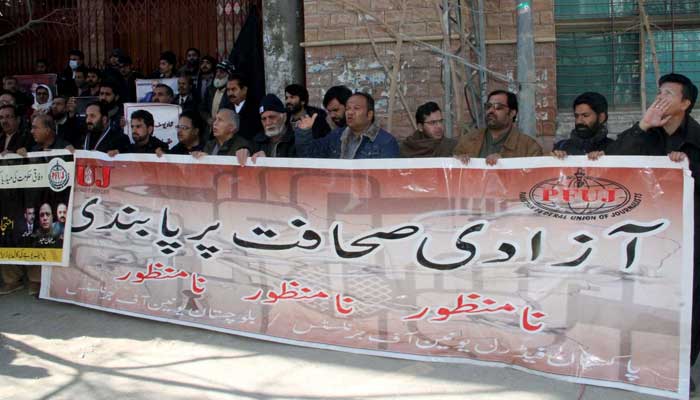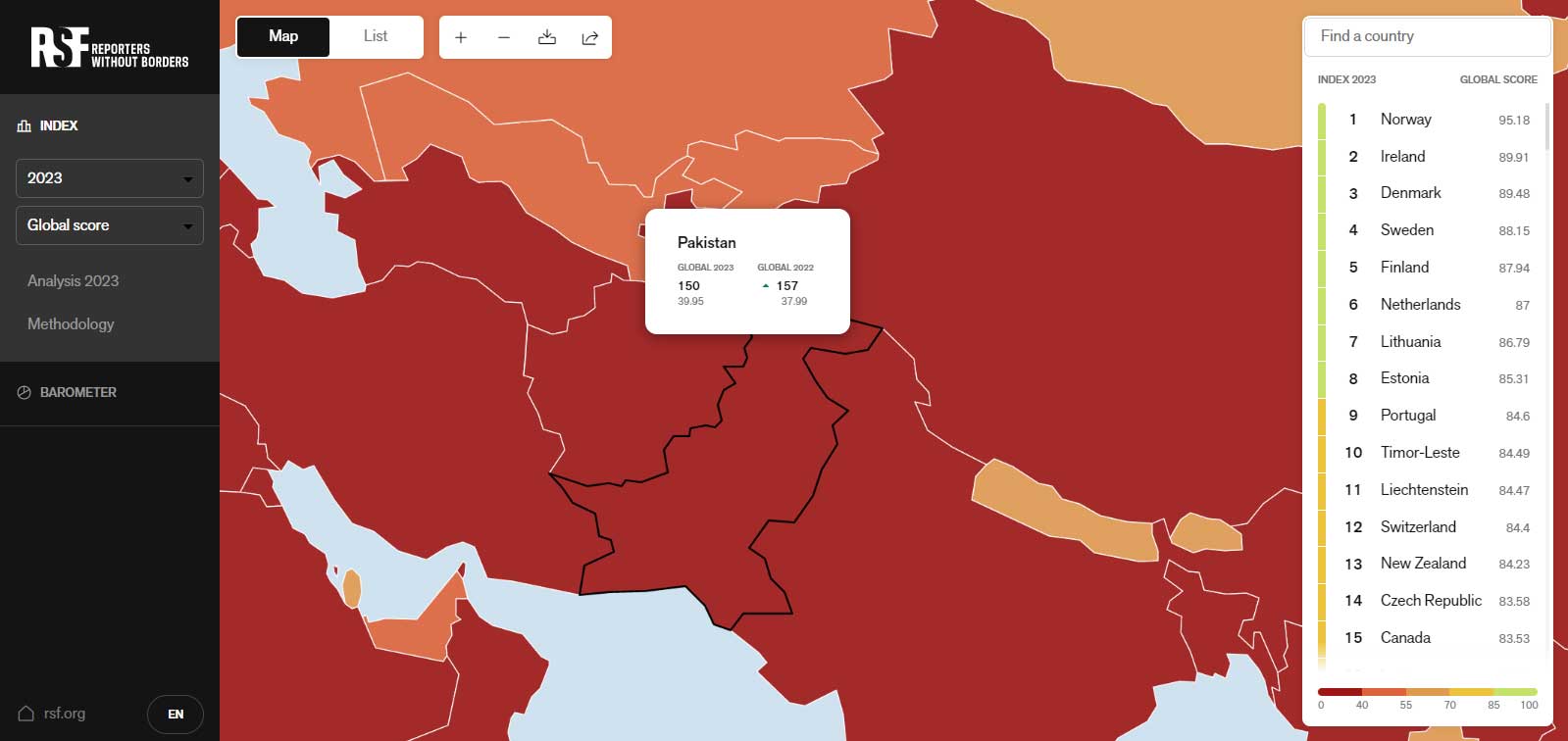RSF terms Pakistan one of 'world’s deadliest countries for journalists'
Pakistan's position improves on RSF's World Press Freedom Index, as it stands at 150th position
As of 2023, Pakistan has seen improvement in press freedom, as it currently stands at the 150th position on the Reporters Without Borders (RSF) World Press Freedom Index with a score of 39.95, the organisation said in its report on Wednesday.
However, it termed Pakistan as one of the "world’s deadliest countries for journalists".
To mark World Press Freedom Day, RSF has shared its report on the state of press freedom in Pakistan with regard to its media landscape, journalists' safety, political context, legal framework, and economic and socioeconomic context.
The country was ranked 157th last year with a score of 37.99, while its security indicator was ranked 140 on the index.
Terming Pakistan as one of the "world’s deadliest countries for journalists", the organisation stated that "three to four murders each year" are often in relation to illegal trafficking or corruption cases, which eventually go unnoticed.
"Ever since its founding in 1947, Pakistan has oscillated between civil society’s quest for greater press freedom and the political and military elite’s constant reassertion of extensive control over the media," the organisation, working on press freedom and safety of journalists around the world, mentioned in its report released on the World Press Freedom Day.
According to the RSF, Pakistan's political parties in opposition are in favour of press freedom but are also the first to impose curbs when in power.
"Pakistan’s media regulators are directly controlled by the government and systematically put defence of the executive government before the public’s right to information," the report mentioned, highlighting that the "military has tightened its grip on civilian institutions, coverage of military and intelligence agency interference in politics has become off limits for journalists."
Shedding light on weaponising the law to suppress press freedom, the report stated that any criticism of the ruling government and the armed forces is censored using legal tactics.
The organisation touched upon the use of power by the Pakistan Electronic Media Regulatory Authority (PEMRA) or law in the form of the Prevention of Electronic Crimes Act (PECA), which was adopted in 2016.
"As for the Protection of Journalists and Media Professionals Act, passed in 2021, said protection is conditional on reporters adopting a certain 'conduct'. As a result of these ambiguously worded laws, journalists who cross the implicit lines dictated by the authorities are exposed to heavy administrative and criminal penalties – up to three years in prison for 'sedition', for example," it stated.
The report also highlighted the financial plight of journalists in the country emphasising salary cuts somewhat owing to the low revenue generated by media outlets, as a result of not daring to "cross the red lines".
"The fact that journalists’ salaries are often cut when their employers are going through financial difficulties encourages self-censorship," RSF said.
With respect to the country's sociocultural context, the report stated that media often depends on the "goodwill of local landowners, tribal leaders and district chiefs who are often obsessed with defending the state."
"The actions of non-state actors, such as fundamentalist groups and separatist rebels, also pose a threat to press freedom, while the persistence of traditional values prevents certain topics from being addressed," it added.
-
Security forces gun down 30 terrorists in multiple IBOs in KP: ISPR
-
MQM-P calls for new province in Sindh
-
US report validates Pakistan military edge over India: PM
-
Banned TTP poses serious threat to Pakistan security: UNSC panel
-
CM Afridi clarifies remarks on by-poll after ECP requests army deployment
-
Dubai sees 3.2m Pakistani passengers in 2025 as airport sets new milestone
-
Security forces kill 23 Indian proxy terrorists in KP's Kurram
-
Pakistan to construct island to boost oil exploration: report













